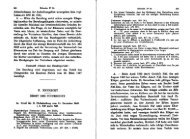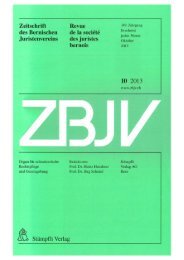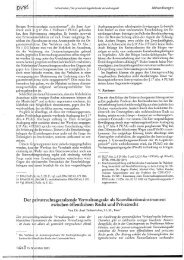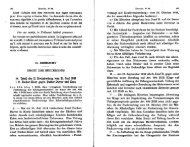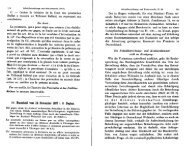Prozedurale Theorien der Gerechtigkeit - servat.unibe.ch
Prozedurale Theorien der Gerechtigkeit - servat.unibe.ch
Prozedurale Theorien der Gerechtigkeit - servat.unibe.ch
Erfolgreiche ePaper selbst erstellen
Machen Sie aus Ihren PDF Publikationen ein blätterbares Flipbook mit unserer einzigartigen Google optimierten e-Paper Software.
a) Die Bausteine <strong>der</strong> Theorie<br />
Der Politis<strong>ch</strong>e Liberalismus ist na<strong>ch</strong> Rawls ein Modell dafür, wie eine Gesells<strong>ch</strong>aft ein<br />
faires und stabiles System <strong>der</strong> Kooperation zwis<strong>ch</strong>en freien und glei<strong>ch</strong>en Bürgern<br />
sein kann, obwohl diese Bürger über die sinnvollen, umfassenden Doktrinen (reasonable<br />
comprehensive doctrines), die sie jeweils unterstützen, zutiefst uneinig sind 389 und<br />
immer sein werden 390 . Drei Bedingungen sollen dafür genügen. Erstens muß eine<br />
politis<strong>ch</strong>e Konzeption <strong>der</strong> <strong>Gere<strong>ch</strong>tigkeit</strong> die Grundstruktur (basic structure) <strong>der</strong> Gesells<strong>ch</strong>aft<br />
regeln 391 – d.h. <strong>der</strong>en wi<strong>ch</strong>tigsten politis<strong>ch</strong>en, sozialen und ökonomis<strong>ch</strong>en<br />
Institutionen sowie das Zusammenspiel dieser Institutionen in einem einheitli<strong>ch</strong>en<br />
System sozialer Kooperation von einer Generation zur nä<strong>ch</strong>sten 392 . Zweitens muß<br />
diese politis<strong>ch</strong>e Konzeption <strong>der</strong> <strong>Gere<strong>ch</strong>tigkeit</strong> dem übergreifenden Konsens (overlapping<br />
consensus) entspre<strong>ch</strong>en 393 , <strong>der</strong> als S<strong>ch</strong>nittmenge aus allen sinnvollen, umfassenden<br />
Doktrinen gebildet wird 394 . Drittens s<strong>ch</strong>ließli<strong>ch</strong> muß die öffentli<strong>ch</strong>e Diskussion<br />
(public discussion) na<strong>ch</strong> den Regeln einer politis<strong>ch</strong>en Konzeption <strong>der</strong> Gere<strong>ch</strong>tig-<br />
389 J. Rawls, Political Liberalism (1993), S. 43 f.: »I recall the combined question that political liberalism<br />
addrsses and say: three conditions seem to be sufficient for society to be a fair and stable system<br />
of cooperation between free and equal citizens who are deeply divided by the reasonable comprehensive<br />
doctrines they affirm.« Zu den 'combined questions' siehe S. 3 f.: »what is the most<br />
appropriate conception of justice for specifying the fair terms of social cooperation between citizens<br />
regarded as free and equal, and as fully cooperating members of society over a complete life,<br />
from one generation to the next? ... what are the grounds of toleration so un<strong>der</strong>stood and given<br />
the fact of reasonable pluralism as the inevitable outcome of free institutions?«<br />
390 J. Rawls, Overlapping Consensus, S. 136: »[W]e also view the diversity of reasonable religious,<br />
philosophical, and moral doctrines found in democratic societies as a permanent feature of their<br />
public culture.«; <strong>der</strong>s., Political Liberalism (1993), S. 3: »[T]he fact of reasonable pluralism as the<br />
inevitable outcome of free institutions«.<br />
391 J. Rawls, Political Liberalism (1993), S. 44: »First, the basic structure of society is regulated by a political<br />
conception of justice«.<br />
392 J. Rawls, Political Liberalism (1993), S. 11 f.: »By basic structure I mean a society's main political,<br />
social, and economic institutions, and how they fit together into one unified system of social cooperation<br />
from one generation to the next. ... I assume that the basic structure is that of a closed society:<br />
that is, we are to regard it as self-contained and as having no relations with other societies.«<br />
Dieses Element <strong>der</strong> basic structure ist ni<strong>ch</strong>t neu; vgl. J. Rawls, Theory of Justice (1971), § 1, S. 4 f.<br />
(well-or<strong>der</strong>ed society); § 2, S. 7: »For us the primary subject of justice is the basic structure of society,<br />
or more exactly, the way in whi<strong>ch</strong> the major social institutions distribute fundamental rights and<br />
duties and determine the division of advantages from social cooperation.«<br />
393 J. Rawls, Political Liberalism (1993), S. 44: »[S]econd, this political conception is the focus of an<br />
overlapping consensus of reasonable comprehensive doctrines«. – Rawls frühere Grundidee einer<br />
wohlgeordneten Gesells<strong>ch</strong>aft geht in <strong>der</strong> Idee des übergreifenden Konsenses auf: vgl. J. Rawls, Political<br />
Liberalism (1993), S. 35-40.<br />
394 Eine umfassende Doktrin kann religiös, philosophis<strong>ch</strong> o<strong>der</strong> moralis<strong>ch</strong> sein. Vgl. J. Rawls, Political<br />
Liberalism (1993), S. 14, 136. Au<strong>ch</strong> dieses Element des overlapping consensus ist ni<strong>ch</strong>t neu; vgl.<br />
J. Rawls, Theory of Justice (1971), § 59, S. 387 f.: »There can, in fact, be consi<strong>der</strong>able differences in<br />
citizens' conceptions of justice provided that these conceptions lead to similar political judgments.<br />
And this is possible, since different premises can yield the same conclusion. In this case there<br />
exists what we may refer to as overlapping rather than strict consensus.« Es gewinnt aber jetzt eine<br />
inhaltli<strong>ch</strong> an<strong>der</strong>e und methodis<strong>ch</strong> zentrale Bedeutung; J. Rawls, Political Liberalism (1993),<br />
S. xvii mit Fn. 5.<br />
206


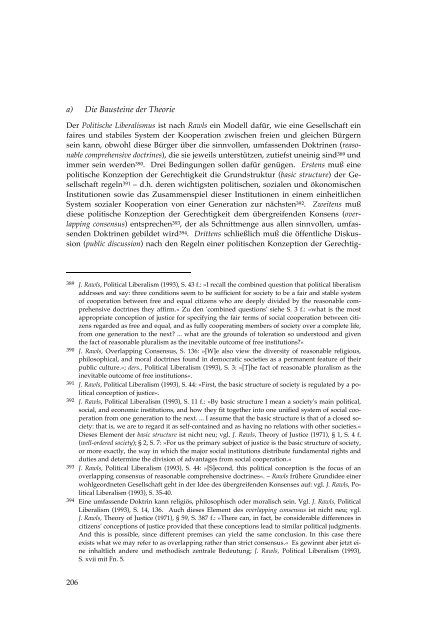
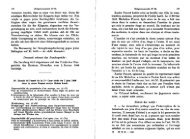
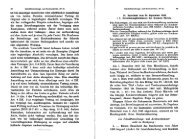
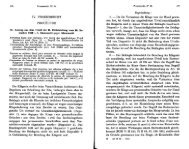
![Seminararbeit [Masterarbeit] - servat.unibe.ch - Universität Bern](https://img.yumpu.com/26241815/1/184x260/seminararbeit-masterarbeit-servatunibech-universitat-bern.jpg?quality=85)
